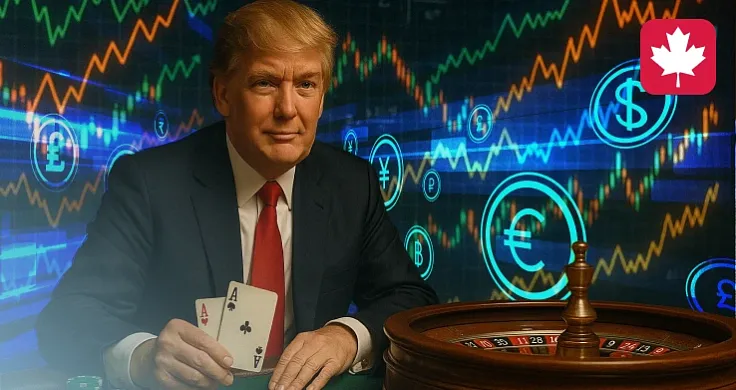
Gambling Takes a Hit: How the Industry Is Coping with the Recession and Trump's Tariffs
Donald Trump's drastic tariff measures, including the controversial announcement of "Liberation Day" on April 2, caused panic in the markets and a short-term crash. However, the gambling industry, oddly enough, remained surprisingly stable. Analysts polled by Next.io are moderately optimistic about the future of the sector, even despite heightened volatility.
What happened?
On April 2, markets faltered after Trump's announcement that the U.S. was imposing massive tariffs. Despite the temporary delay of 90 days, the key points remained:
- universal tax 10%,
- increased tariffs of 25% for Canada and Mexico,
- Tough 125% duty on goods from China.
This fueled economic uncertainty, especially in areas dependent on imports and consumer spending.
Why is gambling not falling?
Analysts remind that the gambling industry has repeatedly demonstrated resilience in difficult times:
- During the 2008 crisis, online gambling in the UK lost only 1-2%.
- Regional casinos in the United States sank by only 4%.
- Sports betting in Nevada (excluding the Strip) decreased by only 2%.
- Americans' spending on betting even increased as a percentage - from 1.5% to 1.7% of income.
The reason is that gambling often becomes a "consolation" expense in times of stress. People can give up expensive purchases, but not a small hope of a big win.
What do the experts say?
Jordan Bender (Citizens Capital Markets):
"Even the suspension of tariffs does not solve the main problem. Inflation continues to weigh down, and consumers are becoming more cautious. This can reduce spending in casinos and hit tourism, especially in Las Vegas (MGM, Caesars) and Macau. Increased spending on food, drink and construction is also hitting the sector."
According to the Macquarie Group:
"And yet, against the backdrop of a recession, there may be a new round of legalization of gambling at the state level. History shows that it is in times of crisis that the authorities more often legalize land-based casinos in order to replenish the budget. This is one of the possible advantages of the current situation."
What is the result?
Yes, the gambling industry is feeling the pressure: tourism is declining, prices are rising, and consumers are less confident. But unlike many other areas, it is able to survive even in such conditions — and even find new growth points in them. If the economy continues to limp, we may see a wave of casino legalization in states where the budget is already bursting at the seams.




celese Haha, classic! First they screwed over the players, then the license turned out to be fake, and now they’re trying to undo everything. A total circus. Yeah, everything will just get bought. They’ll pay whoever they need in Curaçao and get a new license. Money rules everything, especially in this industry.



Mangarin4ik The section about how casinos fire VPNs is a gun. I've never thought about WebRTC and the time zone. Author, thank you, you may have just saved my next deposit.



































yes, if only the prices in the casino for booze did not rise every month, it would be generally super.
I put my dick on Trump, I fucked everywhere every day TRUMP TRUMP TRUMP
These analysts say the same thing every year. Steady-unstable... And as soon as the real crisis comes, everyone runs.
And I, on the contrary, began to play poker online more often. At least somewhere you can catch a buzz while everything around is collapsing
Not surprised at all. People will play even without money - for many it is like an addiction or a way to escape from reality.